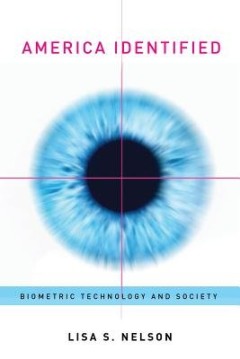Filter by

Surveillance, Privacy and Security : Citizens’ Perspectives
This volume examines the relationship between privacy, surveillance and security, and the alleged privacy–security trade-off, focusing on the citizen’s perspective. Recent revelations of mass surveillance programmes clearly demonstrate the ever-increasing capabilities of surveillance technologies. The lack of serious reactions to these activities shows that the political will to implemen…
- Edition
- -
- ISBN/ISSN
- 9781315619309
- Collation
- -
- Series Title
- -
- Call Number
- -

America Identified: Biometric Technology and Society
An examination of the public perception of biometric identification technology in the context of privacy, security & civil liberties.OCLC-licensed vendor bibliographic record.
- Edition
- -
- ISBN/ISSN
- 9780262289689
- Collation
- 1 online resource (viii, 258 pages) :illustrations
- Series Title
- -
- Call Number
- -

The Privacy Advocates: Resisting the Spread of Surveillance
Today, personal information is captured, processed, and disseminated in a bewildering variety of ways, and through increasingly sophisticated, miniaturized, and distributed technologies: identity cards, biometrics, video surveillance, the use of cookies and spyware by Web sites, data mining and profiling, and many others. In The Privacy Advocates, Colin Bennett analyzes the people and groups ar…
- Edition
- -
- ISBN/ISSN
- 9780262268127
- Collation
- -
- Series Title
- -
- Call Number
- -

Obfuscation : a user's guide for privacy and protest
With Obfuscation, Finn Brunton and Helen Nissenbaum mean to start a revolution. They are calling us not to the barricades but to our computers, offering us ways to fight today's pervasive digital surveillance -- the collection of our data by governments, corporations, advertisers, and hackers. To the toolkit of privacy protecting techniques and projects, they propose adding obfuscation: the del…
- Edition
- -
- ISBN/ISSN
- 9780262331319
- Collation
- 1 online resource (x, 123 pages)
- Series Title
- -
- Call Number
- -

Privacy on the ground : driving corporate behavior in the United States and E…
"Barely a week goes by without a new privacy revelation or scandal. Whether by hackers or spy agencies or social networks, violations of our personal information have shaken entire industries, corroded relations among nations, and bred distrust between democratic governments and their citizens. Polls reflect this concern, and show majorities for more, broader, and stricter regulation -- to put …
- Edition
- -
- ISBN/ISSN
- 0262331349
- Collation
- 1 online resource (xiv, 338 pages).
- Series Title
- -
- Call Number
- -

Privacy on the line :the politics of wiretapping and encryption
Telecommunication has never been perfectly secure. The Cold War culture of recording devices in telephone receivers and bugged embassy offices has been succeeded by a post-9/11 world of NSA wiretaps and demands for data retention. Although the 1990s battle for individual and commercial freedom to use cryptography was won, growth in the use of cryptography has been slow. Meanwhile, regulations r…
- Edition
- Updated and expanded ed.
- ISBN/ISSN
- 9780262256018
- Collation
- 1 online resource (xvii, 473 pages) :illustrations
- Series Title
- -
- Call Number
- -

We, the data :human rights in the digital age
A rallying call for extending human rights beyond our physical selves -- and why we need to reboot rights in our data-intensive world. Our data-intensive world is here to stay, but does that come at the cost of our humanity in terms of autonomy, community, dignity, and equality In We, the Data , Wendy H. Wong argues that we cannot allow that to happen. Exploring the pervasiveness of data collec…
- Edition
- -
- ISBN/ISSN
- 9780262376396
- Collation
- 1 online resource (280 pages).
- Series Title
- -
- Call Number
- -

Discriminating data :correlation, neighborhoods, and the new politics of reco…
"Chun investigates the centrality of race, gender, class, and sexuality to "Big Data" and network analytics"--OCLC-licensed vendor bibliographic record.
- Edition
- -
- ISBN/ISSN
- 0262367262
- Collation
- 1 online resource.
- Series Title
- -
- Call Number
- -

Borders in cyberspace :information policy and the global information infrastr…
Borders in Cyberspace investigates issues arising from national differences in law, public policy, and social and cultural values in light of the emerging global information infrastructure. The contributions include detailed analyses of some of the most visible issues, including intellectual property, security, privacy, and censorship.OCLC-licensed vendor bibliographic record.
- Edition
- -
- ISBN/ISSN
- 058500286X
- Collation
- 1 online resource (xi, 374 pages) :illustrations.
- Series Title
- -
- Call Number
- -

Profiling machines :mapping the personal information economy
The cultural and media studies perspectives on the technology of electronic consumer profiling.In this book Greg Elmer brings the perspectives of cultural and media studies to the subject of consumer profiling and feedback technology in the digital economy. He examines the multiplicity of processes that monitor consumers and automatically collect, store, and cross-reference personal information…
- Edition
- -
- ISBN/ISSN
- 9780262272308
- Collation
- 1 online resource (x, 179 pages)
- Series Title
- -
- Call Number
- -
 Computer Science, Information & General Works
Computer Science, Information & General Works  Philosophy & Psychology
Philosophy & Psychology  Religion
Religion  Social Sciences
Social Sciences  Language
Language  Pure Science
Pure Science  Applied Sciences
Applied Sciences  Art & Recreation
Art & Recreation  Literature
Literature  History & Geography
History & Geography